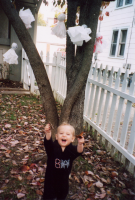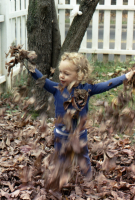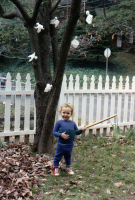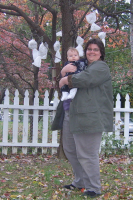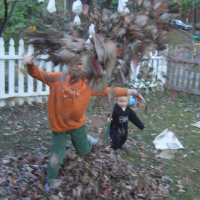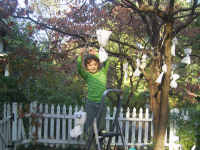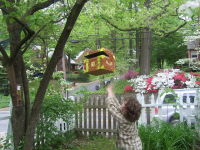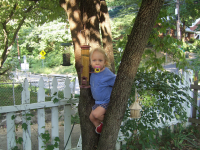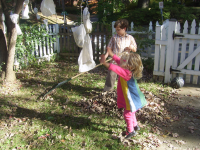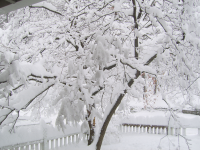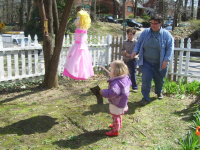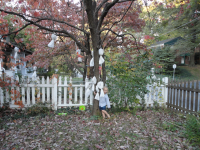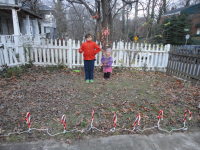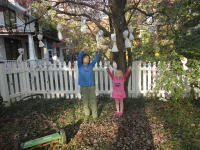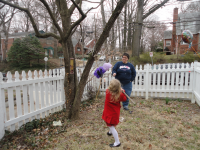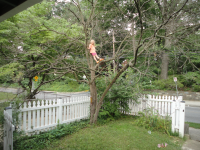I think that I shall never see
A poem lovely as a tree
From “Trees” by Joyce Kilmer
When we pulled into the driveway on the Friday evening we returned from Ohio, I noticed the dogwood was not in the front yard. This was no surprise as we’d hired someone to cut down the tree, which had died sometime during the winter. We only realized when it failed to bud in the spring.
In retrospect, I think the tree had been sick a while. It put out its leaves later than the neighbors’ dogwoods in the spring and it lost its leaves earlier, often starting to shed them as early as late summer, but I thought it was just its quirk.
Around a year ago, I posted on Facebook:
“Steph was working behind closed doors (thanks to the babysitter) on an unseasonably cool mid-August morning when she glanced up and saw a small shower of yellow leaves falling from the dogwood in the yard. It felt like a foretaste of fall.”
We have a big yard with about a dozen trees, not counting the weed trees that spring up in the overgrown, unmown area at the very back of the yard. We have a native species of cherry we planted ourselves and several Japanese cherries the city planted on our sidewalk berm, many silver maples, and one I don’t know the name of, but it has enormous leaves, big white blossoms, and long seedpods.
Still, seeing the empty space where the dogwood ought to be for the first time, I felt a pang. The dogwood was special. It was in the front yard, visible to anyone who approached the house. It had white blossoms in the spring; and in early fall, it grew red berries that attracted birds and signaled its leaves would soon turn red as well. We hung birdfeeders from its branches and every October we festooned it with ghosts. We raked its leaves and threw them in the air (and occasionally paused our raking to play air guitar). In the winter sometimes its boughs were outlined in white and at Christmastime our candy cane lights lit its trunk. In March and May it often sported a piñata in the shape of a pirate chest, a princess, or a spider.
June loved to climb it. When she was small, I’d lift her into the first fork and she was content to stay there, but as she grew older she climbed higher and just a few weeks before the tree came down, she started to go higher still, as high as her mothers, nervous about the brittle, dead branches would let her go.
We’re planning to plant a new dogwood in the fall, but we’ll miss this one.

